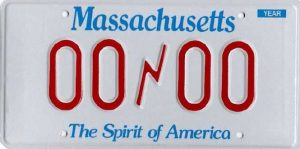New York’s premier second amendment law firm announced that a Massachusetts licensed gun owner who was
arrested for bringing his licensed pistol into Manhattan won a five-year battle to clear his name yesterday after the Appellate Division ruled that the police violated the gun owners Fourth Amendment rights after they stopped a vehicle that he was a passenger in for allegedly running a red light. Tilem & Associates, PC, won the decision suppressing the gun and ordering the indictment dismissed after they appealed the denial of the suppression motion and ultimate plea on behalf of the licensed gun owner whose first name is Sandley. You can read the appellate court decision here.
The events unfolded on September 3, 2016, when the Massachusetts gun owner was a rear seat passenger inside a Cadillac that was being operated near Rucker Park, a famous basketball Court in Harlem that was featured in the movie “On Hallowed Ground: Streetball Champions of Rucker Park.” According to police, three officers from the 32nd Precinct Field Intelligence Unit observed the Cadillac drive through a steady red light and police conducted a traffic stop of the vehicle. According to the police, because the driver was nervous, they asked him to step out of the vehicle to the rear of the vehicle and a Sergeant who was present asked the driver about weapons in the car. The police claimed that in response, the driver gave some ambiguous response with regard to the front passenger “Mike” and so the police took the front passenger out of the Cadillac and patted him down but did not find any weapons.
The police then asked the two remaining rear seat passengers if they had guns and one of them, who was also a licensed concealed gun owner in the State of Massachusetts named Joseph, volunteered that he had a gun. After Joseph was arrested, Sandley, who had his indictment dismissed, was taken out of the Cadillac, patted down and put in a police car, after the police missed the pistol that he had in his waistband during the pat down. Soon thereafter while handcuffed, Sandley volunteered that he had the gun and was arrested for possession of that gun.
The Fourth Amendment to the U.S. Constitution, as well as New York Law limit what actions may be taken by the police with respect to the driver and passengers after a car is pulled over for a routine traffic offense. While the police are allowed to remove a person in the vehicle for their own safety they man not question the driver or any passengers about criminality, guns or drugs unless they have “founded suspicion that criminality is afoot.” As we have discussed many times in this blog, the case of People v. Debour, lays out 4 levels of intrusion that may occur during the interaction between the police and a citizen. The lowest, the basic right to inquire, allows the police to ask very basic non-accusatory questions. The next level, the Common Law Right of inquiry, allows more pointed and accusatory questions but only if the police have founded suspicion that criminality is afoot.
In People v. Garcia, in 2012, New York’s highest Court ruled that a police officer may not ask about weapons in a car after a routine traffic stop based solely on nervousness. However, recently the lower Courts have been getting around that ruling by finding that some additional ground in addition to nervousness could form a basis for asking about weapons. In this case, the police alleged that it was a combination of “extreme” nervousness, out-of-state plates which they claimed could indicate guns being brought into New York and what the police called a “high-crime” area.
In September 2019, our firm conducted a five-day suppression hearing in Manhattan Supreme Court during which three police officers who were present when the Cadillac was stopped testified and the driver and Sandley testified. At the conclusion of the hearing the Supreme Court denied the suppression motion finding that there were six factors that justified the police conduct including: 1) a lawful traffic stop, 2) a violence prone area, 3) an area plagued by gang activity, 4) a vehicle with Massachusetts plates, 5) which alerted the police to the possibility of weapons brought in from out-of-state, and 6) a visibly nervous driver.
After the Supreme Court ruled against Sandley, he pleaded guilty to one Count of Attempted Criminal Possession of a Weapon in the Second Degree and was sentenced to a Conditional Discharge (an order to stay out of trouble) on the condition that he could appeal the denial of his suppression motion.
Yesterday, after a five-year fight, the Appellate Division for the First Department in Manhattan ruled that neither the traffic stop occurring in a high crime area nor the uncorroborated perception by a police officer that out-of-state plates are more highly associated with criminal activity and guns than New York plates was enough to raise the police officer’s suspicion to justify the common law right of inquiry.
The Appellate Court ordered the indictment dismissed.
 New York Criminal Attorney Blog
New York Criminal Attorney Blog


